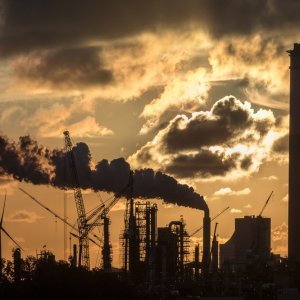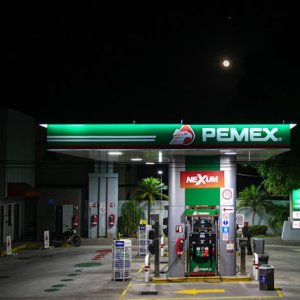Is Mexico Missing an Opportunity to Diversify its Energy Sources?

STORY INLINE POST
The last few years have been complicated for the energy sector in Mexico. The growing trend of clean energy experienced before is now facing challenges that have slowed down its expansion, leading to a decrease (or lag) in direct investment related to energy infrastructure. The World Economic Forum ranked Mexico 14th out of the 20 countries with the most investment in renewable energy from 2010 to 2019 but, unfortunately, investment is well below that of Brazil, for instance. In the oil and gas sector, the post-pandemic reality has changed the dynamics of the economy, which is related to the increase in natural demand due to the reactivation of many productive activities, but above all because of the invasion of Ukraine, resulting in the current situation of high oil prices.
High oil prices have altered global economic dynamics and, according to many forecasts, high prices will continue for longer. According to the International Energy Agency (IEA), the net income from oil production in 2022 is anticipated to be US$2 trillion higher than 2021, which represents a growth of 2.5 times compared to the average of the last five years. The IEA establishes that if all this additional income were invested in the development of low-emission fuels (such as hydrogen and biofuel), it would practically support all the necessary investment in these fuels for the remainder of the decade to reach net zero by 2050. The question is, are oil companies just enjoying the ride and slowing investment in clean energy and ESG initiatives?
In this environment, Mexico is probably facing a “one-off” opportunity to diversify its energy sources, and consequently, align its economy to adapt to the new energy economy that is emerging. In this regard, the IEA has raised this opportunity to focus those additional oil revenues and precisely diversify and change the destiny of the sector in the long term.
The current situation of the energy market has produced significant challenges but, above all, it provides a unique opportunity, especially for those countries that still have a level of dependence on oil, because they are producers (which is no longer the case for Mexico) or just because their energy consumption is more linked to fossil fuels.
In the case of Mexico, even though private operators have made relevant contributions to the sector, for example adding 17 discoveries since they started exploration, these contributions are in the early stages and production is still relatively low compared to PEMEX production. Therefore, the development of oil production remains highly linked to what happens at PEMEX. Unfortunately, due to its financial weakness added to controversial investment decisions, it has not been able to take advantage of the additional income related to the high oil prices to substantially improve its financial capabilities and, therefore, be able to refocus on the long term with better prospects.
As a result of the above, it is most likely that the additional income will not be used by Mexico to improve its energy portfolio. In fact, it seems likely, for example, that electricity generation will continue to prioritize (in practice) the use of fossil fuels over opportunities to allow greater investment in renewable energies.
Another source of additional income for Mexico can be materialized in connection with private participation. It is well-known that Mexico closed the opportunity for more rounds to assign new oil areas to the private sector, while countries like Argentina, Brazil, and Colombia, for instance, generated US$20 billion as a bonus for new assignations. If Mexico had continued with those rounds, it would probably be generating more resources that, in combination with high oil prices, would have contributed to a better outlook for its energy future, provided, of course, that focused and well-oriented policies were also in place.
The global supply chain crisis and the “nearshoring” trend become an opportunity for Mexico to consolidate a unique position and maximize the opportunities provided by the North American free trade agreement (NAFTA); unfortunately, this requires maintaining a high level of competitiveness for which energy supply is a key factor, and energy policies to date do not contribute as much as needed to that goal, much less allow the achievement of environmental goals shared by many countries.
If there is no change in current policies, Mexico will be missing an excellent opportunity to materialize commercial advantages, incentivize private investment and use that oil price surplus to refocus the country's energy investment in favour of diversification and, therefore, ensuring greater competitiveness. The current moment should be used to reduce uncertainty and reach agreements that allow the country's energy policy to be realigned with the goal of achieving higher competitiveness and a long-term vision aligned with the energy transition.
We must consider that the countries that are switching to more decarbonized energy sources are seeing greater success in achieving reduced dependence on the global energy market and, therefore, achieving greater energy security. This is key in maintaining commercial competitiveness in a world that is in a process of reconfiguration that is increasingly based on delimited regions and less on globalization.








 By Fernando Cruz Galván | Director Mexico -
Fri, 07/01/2022 - 11:00
By Fernando Cruz Galván | Director Mexico -
Fri, 07/01/2022 - 11:00
















